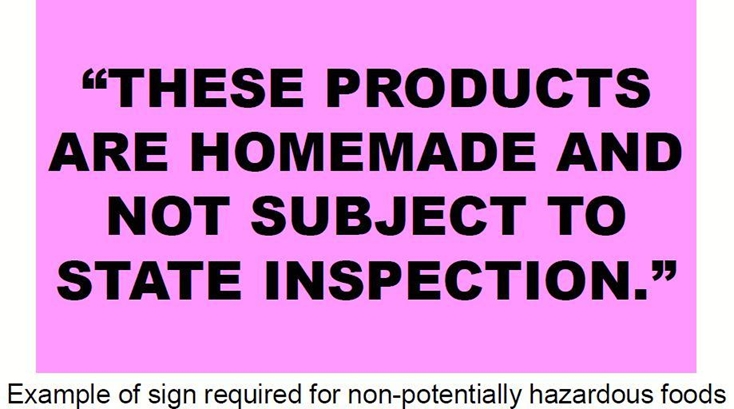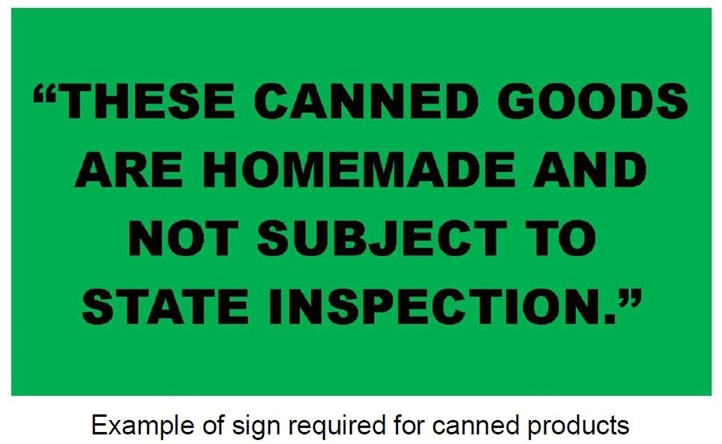Inspectors may be present at venues like farmers’ markets and community events to verify registration and that food is being sold in a manner consistent with Minnesota laws. In addition, if food sold by a cottage food producer is suspected or confirmed to have caused illness or injury, the MDA will conduct an investigation which may include an inspection of the location where the food was produced. Under Minnesota law, the MDA has the authority to enter at reasonable times any establishment where food is manufactured, processed, packed, or held. Inspection and investigation activities would be limited to areas of the location where food is manufactured, processed, packed, or held.
Inspectors may be present at venues like farmers’ markets and community events to verify registration and that food is being sold in a manner consistent with Minnesota laws. In addition, if food sold by a cottage food producer is suspected or confirmed to have caused illness or injury, the MDA will conduct an investigation which may include an inspection of the location where the food was produced. Under Minnesota law, the MDA has the authority to enter at reasonable times any establishment where food is manufactured, processed, packed, or held. Inspection and investigation activities would be limited to areas of the location where food is manufactured, processed, packed, or held.
The MDA investigates complaints to ensure people selling cottage food are complying with the law, including all the topics covered in this guidance document: registration, training, sales amounts, sales locations, food types, labeling, and placarding. Actions depend on the severity of the violation and may include inspection, written notice, penalties, or prosecution.
The MDA investigates complaints to ensure people selling cottage food are complying with the law, including all the topics covered in this guidance document: registration, training, sales amounts, sales locations, food types, labeling, and placarding. Actions depend on the severity of the violation and may include inspection, written notice, penalties, or prosecution.
Inspectors may be present at venues like farmers’ markets and community events to verify registration and that food is being sold in a manner consistent with Minnesota laws. In addition, if food sold by a cottage food producer is suspected or confirmed to have caused illness or injury, the MDA will conduct an investigation which may include an inspection of the location where the food was produced. Under Minnesota law, the MDA has the authority to enter at reasonable times any establishment where food is manufactured, processed, packed, or held. Inspection and investigation activities would be limited to areas of the location where food is manufactured, processed, packed, or held.
The MDA investigates complaints to ensure people selling cottage food are complying with the law, including all the topics covered in this guidance document: registration, training, sales amounts, sales locations, food types, labeling, and placarding. Actions depend on the severity of the violation and may include inspection, written notice, penalties, or prosecution.
Other

For more information on these signs, see the Labeling, Signage, and Packaging section above.

For more information on these signs, see the Labeling, Signage, and Packaging section above.

For more information on these signs, see the Labeling, Signage, and Packaging section above.

For more information on these signs, see the Labeling, Signage, and Packaging section above.

